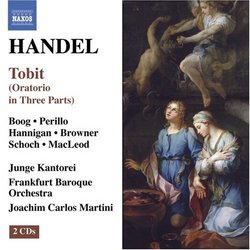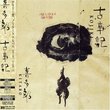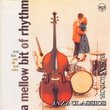| All Artists: John Christopher Smith, Joachim Martini, Alison Browner, Frankfurt Baroque Orchestra, Barbara Hannigan, Linda Perillo, Maya Boog, Knut Schoch Title: John Christopher Smith: Tobit - Oratorio after Handel Members Wishing: 0 Total Copies: 0 Label: Naxos Original Release Date: 1/1/2007 Re-Release Date: 2/27/2007 Genre: Classical Styles: Opera & Classical Vocal, Chamber Music, Historical Periods, Classical (c.1770-1830) Number of Discs: 1 SwapaCD Credits: 1 UPC: 747313011377 |
Search - John Christopher Smith, Joachim Martini, Alison Browner :: John Christopher Smith: Tobit - Oratorio after Handel
 | John Christopher Smith, Joachim Martini, Alison Browner John Christopher Smith: Tobit - Oratorio after Handel Genre: Classical
|
Larger Image |
CD DetailsSimilar CDs
|
CD ReviewsGeorgian Estate Tax? Giordano Bruno | Wherever I am, I am. | 04/22/2010 (3 out of 5 stars) "You'll have to ransack your knowledge of Handel's London to figure out the meaning of my smart-aleck review title. But my rating is easy; the recording quality of this CD is too poor to justify more than three stars, no matter that the performance is (or was) quite decent. The Frankfurt Baroque Orchestra plays with panache, all four sopranos have the right stuff, and even the chorus shows musical instincts. But even if the sound quality were better, this would be a "collector's item" performance, a strange historical artifact.
When Georg Friedrich Handel visited Ansbach, Germany, in 1716, he invited Johann Cristoph Schmidt to come to England to serve as his assistant and chief copyist. Under the Anglicized name John Christopher Smith, "Schmidt" served faithfully until Handel's death in 1759. He was rewarded by the bequest of all of Handel's own manuscripts. Schmidt/Smith lived only until 1763, whereupon the manuscripts passed to his son, also named John Christopher Smith. The younger Smith had already been serving as Handel's helper in the performance of oratorios. He was an organist, a teacher of music, and a very minor composer in his own right. After Handel's death, he took the lead in perpetuating the annual performances of The Messiah and other oratorios, particularly as charity fundraisers. "Tobit" was one of several pastiche oratorios Smith assembled by selecting arias and choruses from Handel's various manuscripts; the English libretto for "Tobit" was supplied by Thomas Morell. There is only circumstantial evidence that the pastiche was ever performed. The creation of a "new" work from old music was not at all unusual or disreputable in Smith's era; Handel himself was a diligent recycler of his own music, and occasionally of the music of others. So... what to make of this "oratorio" Tobit? Plus: It's Handel! Why, it's even 'selected' Handel. Minus: It's Handel only track by track. The total pastiche is not a Handelian conception, and one can't help feeling that even the decrepit, bloated, blind Handel of his last years would have felt some need for originality, variety and/or unity in an oratorio of this scale. Smith's pastiche is comprised almost entirely of "rousing" arias and more rousing choruses, the sort of Handel that George Orwell disdainful described as "The Big Bow-wow." Hey, I enjoy being roused now and again, but in this pastiche, the effort to show that "more is more" teeters toward bombast. There's another Plus, nevertheless, for Handel aficionados. You can play a parlor game with yourself by trying to recognize the source of each track in the operas, cantatas, and oratorios Handel left for Mr. Smith to cull. Don't waste your effort on the recitativos; many of them were written by Smith. I think I could recognize the sources of roughly half of the Handelian portions, but I can't prove it; unfortunately, the sources are NOT identified in the CD notes." |

 Track Listings (33) - Disc #1
Track Listings (33) - Disc #1

